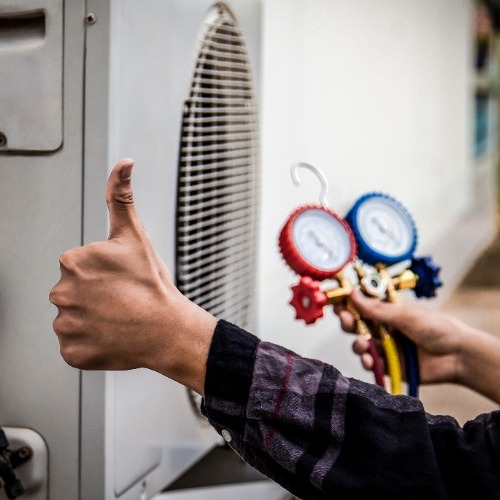
Is Energy Efficiency Worth It?
Most homes in the Kathleen, Georgia area have central air, also referred to as HVAC systems. HVAC is short for heating, ventilation, and air conditioning. With a concern for the environment and the monthly utility bills, it has become more important to many of us to upgrade to an energy-efficient HVAC system.
Energy-efficient HVAC systems are designed to reduce the amount of energy consumed, saving money on bills and it is better for the environment. What is an HVAC system consist of? There are many components and parts in an energy efficient HVAC system, but the main parts, each an energy-efficient part, are:
- An air filter
- A blower motor
- A compressor
- Sealed supply registers
- Insulated air ducts
And a programmable thermostat that is used to control the temperature setting. This is a key component to making the system energy efficient.
What are the benefits of an energy-efficient HVAC system?
There are several benefits to having an energy-efficient HVAC system, but the main three benefits are:
1. Carbon Footprint Reduced
There are several environmental crises today, some are getting worse by the day. One of the things we can do is utilize things that reduce our carbon footprint. An energy-efficient HVAC system does this while keeping your home comfortable.
2. Saves Money
The term energy efficient HVAC system means you’ll only be using the energy needed to power the system. This means less electricity which keeps more money in your bank account.
An energy-efficient HVAC system doesn’t work as hard as it used to, so the system needs less repair and will last longer. Saving you from having to make that big purchase too frequently.
What maintenance is needed to keep an energy-efficient HVAC system energy efficient?
The key maintenance task that keeps an energy-efficient HVAC system energy efficient is to change or clean the air filter. For most systems, every 30 days is recommended, however, if you have several pets or live in a dusty area, you may need to do this every 15 to 20 days. Other steps you can do include:
- Clean Air Conditioner Coils
There is a condenser coil within the system that collects dirt over time, and the air filter minimizes what gets to the coil. However, the coils still collect dirt, and if they aren’t cleaned, the airflow is blocked. This keeps the coil from absorbing heat that is converted into cooled air.
The exterior component has a condenser coil, which can get blocked by dirt dust, grass, and trash sucked up to it. This should be cleaned every month as well and make sure that grass and other foliage aren’t growing up around it.
- Coil Fins
There are aluminum fins on the condenser and evaporator coils that can get bent easily. This blocks airflow, but by keeping them straightened out, using a fin comb, you can keep the air flowing as it needs.
- Condensation Drain
As an energy-efficient HVAC system cools, it creates condensation which flows through drain channels into a drip pan. When the drain channels become clogged, the excess moisture can back up onto the flooring, discoloring the flooring and allowing mildew to form.
What are the differences between an energy-efficient HVAC system and a standard HVAC system?
Upgrading from your current HVAC system to an energy-efficient HVAC system will come at a cost upfront. However, that higher cost will be recovered over time with the energy savings. The differences that help this are:
- SEER
The SEER (Seasonal Energy Efficiency Ratio) is how air conditioner efficiency is rated. The EPA (Environmental Protection Agency) requires every air conditioning sold today to have a SEER rating of 14 and up, whether it is labeled as high efficiency. The higher the SEER rating the higher the cost.
- Innovation
Technology has come a long way with innovation, including features that maximize comfort levels while not damaging the environment. This is done with variable speed adjusters that allow you to improve the efficiency as it operates. High energy efficient HVAC systems today regulate humidity better today without on-on-off cycling.
In Conclusion
If you’re considering placing your home on the market in the near future, upgrading to an energy-efficient HVAC system will be an attractive feature for prospective buyers. Couple that with added insulation in the attic and upgraded windows will make your home stand above others in the same neighborhood that doesn’t offer these upgrades.
If you’re not planning on selling, your home will be more comfortable at less cost by upgrading to an energy-efficient HVAC system. The savings each month will recoup your investment over time. By following a routine schedule of changing or cleaning the air filters, coils, and drain pan, you’ll ensure a longer lifespan of your investment. If you would like to learn more about an energy-efficient HVAC system in Bonaire and Warner Robins, GA, please reach out to us at 478-960-5825 today!
